*** Proof of Product ***
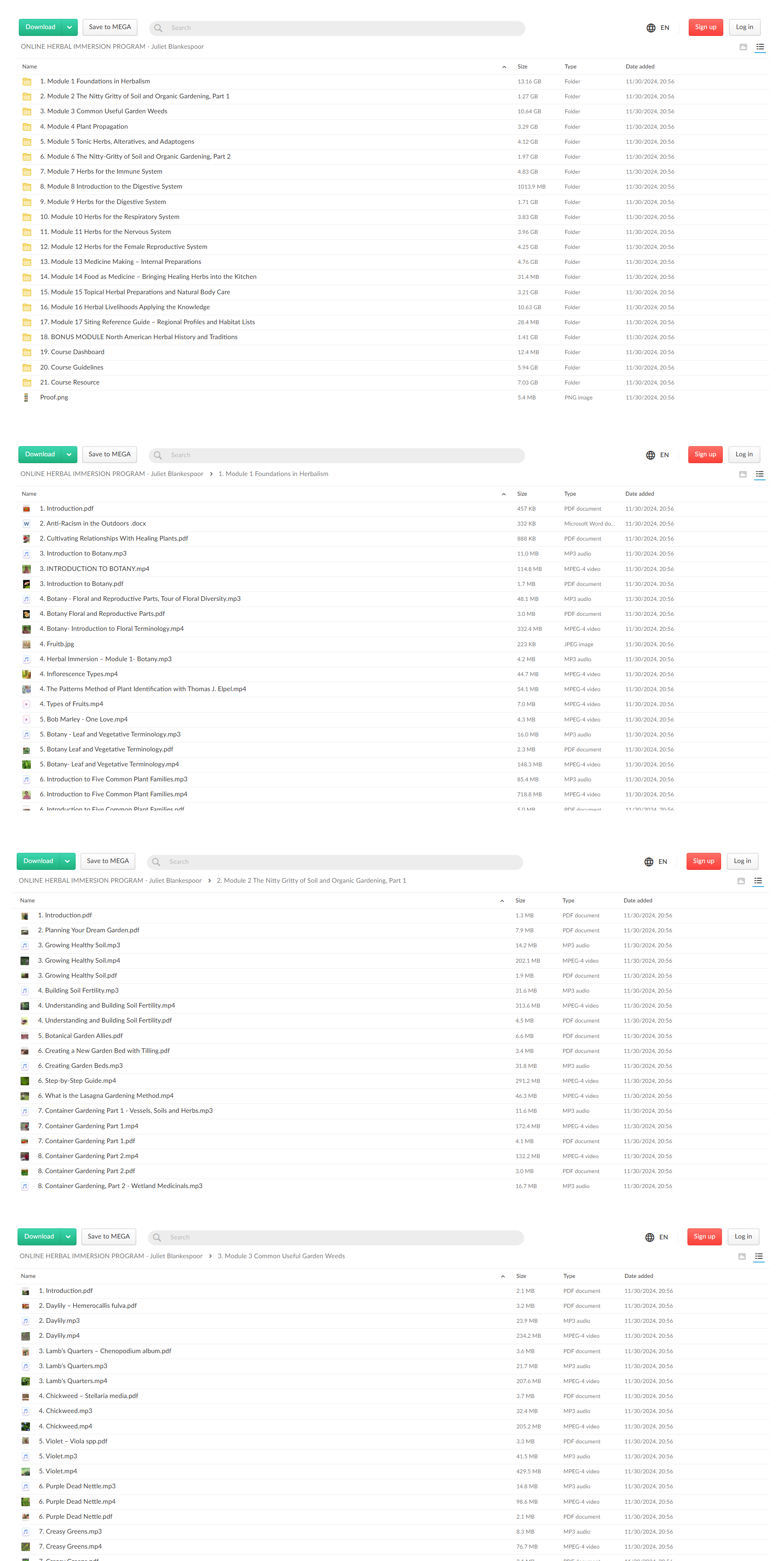
Exploring the Essential Features of “ONLINE HERBAL IMMERSION PROGRAM – Juliet Blankespoor”
Have you ever felt confused trying to grow your own herb garden?
Or wondered which herbal preparation will be the most potent?
I understand how hard it is to navigate the deluge of herbal information out there, and find a resource you can trust.
With over thirty years under my belt growing herbs, making medicine, and teaching about plants, I’ve come up with a program that is chock-full of expert guidance for cultivating medicinal herbs and addressing common ailments at home with your very own tinctures, syrups, poultices and salves.
Bonus: You’ll be learning all about herbs while you save money—growing the garden of your dreams and whipping up a homegrown medicine chest full of the highest quality remedies to be found!
~Juliet Blankespoor
Green Mastermind at the Chestnut School of Herbal Medicine
Herbal Immersion Program Outline (1,000 hours)
MODULE 1: Foundations in Hearbalism
- Cultivating Relationships with Healing Plants
- Introduction to Botany
- Plant Families
- Vegetative and Floral Terms
- Herbal Actions
- Ethical Wildcrafting
- Spring Plant Walk
- Medicinal Preparations
- Harvesting Herbs
- Edible Flowers
MODULE 1.25: Herbal Safety
- Herbal Safety: Introduction
- Herbal Safety: Essential Oils and Allergic and Topical Reactions
- Herbal Safety: Adulteration, Contamination, and Notable Constiuents
- Herbal Safety: Herb-Drug Interactions
- Herbal Safety: Pregnancy and Lactation
- Herbal Safety: Serious Health Conditions and Concerns
MODULE 1.5: Herbalism in Action
- Indentity and Personal, Community and Cultural Health
- Indentity Concepts: Some Definitions & Parameters
- Introduction to Health Disparities
- Health Disparities: The Framework
- Health Disparities: Root Causes and Outcomes
- Strategies to Help Healers and Health Care Workers Combat Disparities
- Mutual Aid and Community Care
- Herbal Accessibility: Uniting Culture and Community Gardens
- Professionalism and Ethics: Relationships, Reputation, Accountability, Attribution, Plagiarism, Confidentiality
- Energetic Plant Medicine
MODULE 1.75: North American Herbal History and Traditions
- Connecting With Your Own Herbal Linage & Honoring Other Traditions
- Introduction
- A History of European & North American Colonial Herbal Medicine
- A History of Black Herbal Medicine from Africa to North America
- A History of Latin American Influences on Herbal Medicine in North America
- Black Herbal Elders with Lucretia Van Dyke
MODULE 2: The Nitty-Gritty of Soil, Part 1
- Priciples of Organic Gardening
- Planning Your Dream Garden
- Adaptations for Garden Accessibility
- Growing Healthy Soil
- Building Soil Fertility
- Botanical Gerden Allies
- Creating New Garden Beds
- Container Gardening
MODULE 3: Common Useful Garden Weeds
- Daylily
- Lamb’s Quarters
- Chickweed
- Dandelion
- Violet
- Purple Dead
- Nettle
- Cleavers
- Creasy Greens
- Garlic Mustard
- Yellow Dock
- Japanese Honeysuckle
MODULE 4: Plant Propagation
- Special Strategies for Germinating Herbs: Stratification, Sacrification, and Light-Dependent Germination
- Preparing Seed Trays
- Sowing Seeds
- Soil Blocks
- Bottom Heat
- Root
- Division
- Sten Cuttings
- Lavering
- Seed Saving of Medicinal Herbs
MODULE 5: Tonic Herbs and Adaptogens
- Introduction to Adaptogens, Alteratives and Tonic Herbs
- Gotu
- Kola
- Tulsi
- Nettles
- Milky Oats
- Astragalus
- Ginseng
- Hibiscus
MODULE 6: The Nitty-Gritty of Soil, Part 2
- Introduction to Permaculture
- Building a Compost Pile
- Composting Leaf Mold
- Organic Pest and Disease Management
- Season Extension
- Woodland Cultivation of Medicinal Herbs
- Homemade Potting Soil
MODULE 7: Herbs for the Immune System
- Introduction to Immune Stimulants, Immunomodulators and Antimicrobials
- Spilanthes
- Erchinaca
- Goldenseal
- Bee-Balm and Wild Bergamot
- Calendula
- Boneset
- Elderberry
MODULE 8: Introduction to the Digestive System
- Bitters, Astrigents and Carminatives
- Foundationa of Nutrition: Whole Foods, Organic Foods and GMOs
- Macronutrients, Fiber, and Intestinal Flora
- Vitamins and Minerals
- Bioflavonoids
- Food Allergies and Intolerances
MODULE 9: Herbs for the Digestive System
- Anise Hyssop
- Meadowsweet
- Fennel
- Mint
- Chamomile
- Lemon Balm
- Basil
MODULE 10: Herbs for the Respiratory System
- Introsuction to Expectorants, Demulcents and Anticatarrhals
- Elecampane
- Mullein
- Marshmallow
- Yarrow
- Goldenrod
MODULE 11: Herbs for the Nervous System
- Introduction to Nervines, Hypnotics, Anxiolytics, Antidepressants and Analgesics
- Valerian
- Skullcap
- Passionflower
- California Poppy
- Mimosa
- Rose
- Vervain
MODULE 12: Herbs for the Ovarian Generative System
- Urine Tonics, Emmenagogues, Hormone Balancers and Uterine Antispasmodics
- Ecology of Estrogen in the Body
- Red Rasberry and Blackberry
- Black Cohosh
- Vitex
- Mothewort
MODULE 12.5: Herbs for the Testicular Generative System
- TCM Terms, Anatomy, and Patterns
- 5 Plants for the Testicular Generative Systems
- Herbs, Foods, and Conditions
MODULE 13: Medicine Making – Core Preparations
- Infusions and Decoctions
- Tinctures
- Herbal Honey and Syrups
- Herbal Vinegars
- Flowe Essences
MODULE 14: Food as Medicine
- Meads
- Culinary Oils
- Infused Vinergars
- Fire Ciders: Spicy Vinegars
- Goo Balls
- Compound Butters
- Herbal Finishing Salts
- Herbal Sauces
- Wild Herbal Pestos, Hummus, and Pâté
- Medicinal Mushroom Concoction
- Herbal Popsicles, Iced Teas, and Granitas
- Bone Broth
- Bitters
- Shruubs
- Herbal Ice Cubes
- Simple Syrups
- Cocktaiks and Mocktails
MODULE 15; Topical Preparations and Natural Body Care
- Infused Oils and Salves
- Compresses, Poulices, and Herbal First Aids
- Introduction to Hydrotherapy
- Introduction to Aromatherapy
- Floral Skin Serum
- Body Butters
- Salt Scrubs
- Bath Salts
- Aromatherapy Sprays
- Aromatic Massage Oils
MODULE 16: Herbal Livelihood and Career Paths
- The Heart of Livelihoods: Business Ethics and Insprations
- Herbal Livelihoods
- The Nitty-Gritty of Herbal Businesses
- Introduction to Current Good Manufacturing Processes (cGMPs) and Product Labeling Requirements
- Further Learning and Networking
- Connecting to Your Life’s Purpose
- Permaculture in Action: Joe Hollis’ Mountain Gardens
- Amy Hamilton
- Lorna Mauney-Brodek
- Dr. James Duke
- Asia Suler
- History of Earthaven Ecovillage
- Permaculture Principles with Chuck Marsh
- Kauai Farmacy Gardens
- Brandon Ruiz
- Marc Williams
- Ayo Ngozi Drayton
- Leah Penniman
- Meshell Orozo
- Ellenie Cruz
MODULE 17: Siting Reference Guide-Regional Profiles and Habitat Lists
- Arid Lowland Climates with Monica Rude
- Cold Temperature Climates with Deb Soule
- Arid Mountainous Climates with Kathi Keville
- Rocky Soils in Mid-Continental Climates with Steven Foster
- Subtropical Climates with Emily Ruff
- Mediterranean Climate with Richo Cech
- Woodland Medicinals with Joe Hollis
- Wetland Herbs
- Shade Herbs
- Arid climate Herbs
- Hot and Humis Climate Herbs
- Temperate Moist Climates (Pacific Northwest/BC climates) with Meshell Orozco
Holistic Business Practices
- Sora Surya No: Claiming Your Authentic Voice
- Maya Gaddie: Self-Care In Entrepreneurship: A Sustainable System for Resilience and Work-Life Balance; Diversifying Your Income Stream; Product-Based Businesses
- Meghan Gemma: The Art of Authentic and Creative Copuwriting
- Catherine Campbell: Heart-Centered Marketing
- Sonia Thompson: Inclusive Marketing
- Sarah Benoit: Email Marketing; Social Media Marketing Strategy
- Michelle Martello: Your Website Matters
- McCayne Miller: Business Adulting
- Michelle Warner: Networking That Pays
Herbal Charts
- Herbal Propagation Chart
- Planning Your World Germination Takeover Chart
- Seeding Journal
- Herb Harvesting and Medicine Making Chart
- Beneficial Insescts (Predators), Their Prey, Preferred Habitat, and Food Plants
Meet Out Feature Botanical Stars
Our program in infused with a plant-centered approach to herbal medicine. From anise hyssop to yello dock, the course focuesu on an all-star lineup of botanicals, primo for most temperate climate gardens. Note that most of the following herbs are the headliners of thier very own videl and profile.
Here’s what you’ll be able to do after completing the program:
- Build drop-dead gorgeous herb gardens, frequented by colorful pollinators and covetous neighbors
- Create your own medicine chest, filled with high-quality botanical remedies, made from homegrown herbs and medicinal wild weeds
- Start an herbal nursery, small herb farm, or herbal CSA
- Use tonic herbs to promote long-term health and help prevent illness
- Connect with plants, the earth, and the cycles of life on a deeper level
- Address common health complaints with your own teas, tinctures, salves and oils
- Teach your children to prepare their own herbal remedies – laying the foundation for self-care and knowledge of natural medicine
- Indulge yourself with luscious body butters, creams and scrubs
- Create value-added medicinal or culinary products for your farm
- Lavish your loved ones with beautiful and tasty herbal-based gifts
- Master herbal actions so you can better match herbs with specific conditions
- Share the abundant herbal harvest with your friends, family and neighbors
- Discover your own herbal allies: treasured plant friends you can call on for years
- Develop a homespun herbal products business
- Gather common wild foods and prepare them into delectable meals
- Build a forest garden with endangered medicinal plants
- Grow perennial vegetables, culinary herbs and edible flowers as a hobby or small specialty business
Who’s this course for?
- Anyone who wants to learn more about growing and using medicinal plants, including:
- Herbal enthusiasts and herbalists who want to go deeper with botanical medicine
- Herbal entrepreneurs who wish to start an herbal products line or an herb nursery or seed business
- Parents who wish to learn about simple natural remedies that can easily be grown and prepared at home
- Botanical moguls who wish to grow a sustainable herbal products business based on medicine sourced from their own fields and gardens
- Vegetable farmers who want to diversify their crops and create value-added culinary and medicinal products
- Permaculturists who wish to further explore the realm of healing plants and wild foods
- Community garden organizers and instructors who want to bring the joy of herbs into their communities
- Homesteaders and vegetable growers interested in medicinal sovereignty and long-term community resilience and self-sufficiency
- Gardeners who wish to incorporate more useful plants into the home landscape
- Homeschooling families with older children and teenagers who are excited to explore medicinal garden plants together (see FAQs for details)
- Herbalists trained in the medicinal use of herbs, who want to know the herbs on a more intimate level, especially how to grow them
Meet Our Instructors and Contributors
Core Instructors:
- Juliet Blankespoor
- 7Song
- Meghan Gemma
- Asia Suler
- Marc Williams
- Lorna Mauney-Brodek
Featured Contributors:
- Amy Hamilton
- Anne Gaines
- Ayo Ngozi Drayton
- Becky Beyer
- Brandon Ruiz
- Chuck Marsh
- Deb Soule
- Doug Wolkon
- Ellenie Cruz
- Emily Ruff
- Felicia Cocotzin Ruiz
- Geoffrey “Geo” Edwards, L.Ac
- Greg Hottinger
- Heather “Brydie” Harris
- Jade Shutes
- Dr. James Duke
- Joe Hollis
- Dr. Jus Crea Giammarino
- Kathi Keville
- Khamé Abayé
- Lara Pacheco
- Larken Bunce
- Leah Penniman
- Lucretia VanDyke
- Meshell Orozco
- Monica Rude
- Richo Cech
- Sarah Nuñez
- Steven Foster
- Tom Elmore
- Xian R. Brooks
Do you find yourself yearning for a deeper connection to the herbs you use medicinally?
We believe direct connection with healing plants is THE best way to learn about their medicine. When we fully know an herb, it virtually comes to life, blooming in our mind and heart. Suddenly, it’s easier to remember its medicinal qualities, as we now recognize the herb as a distinct personality. That’s why our program is infused with a plant-centered approach to herbal medicine.
You might be asking yourself, what exactly does that mean?
It means the plants are the stars of the show.
In this course we’ll introduce you to each of our botanical starlets on an intimate level. We know good medicine begins with good relationships, so a deep-rooted connection to healing plants is at the heart of our teachings.
Have you been studying herbs for a while, but just aren’t sure how to tie everything together?
Or maybe you’re already an experienced herbalist, but feel like something’s missing from your repertoire…
Whether you’re just beginning to dabble in herbalism or you’re ready to take your craft to the next level, we’ve got something special to share with you. Our students range from complete newbies to seasoned herbalists, with established gardens and businesses. One of the beauties of online learning is the community support and mentorship, and the ability to network with herb lovers from around the globe.
Please see the full list of alternative group-buy courses available here: https://lunacourse.com/shop/

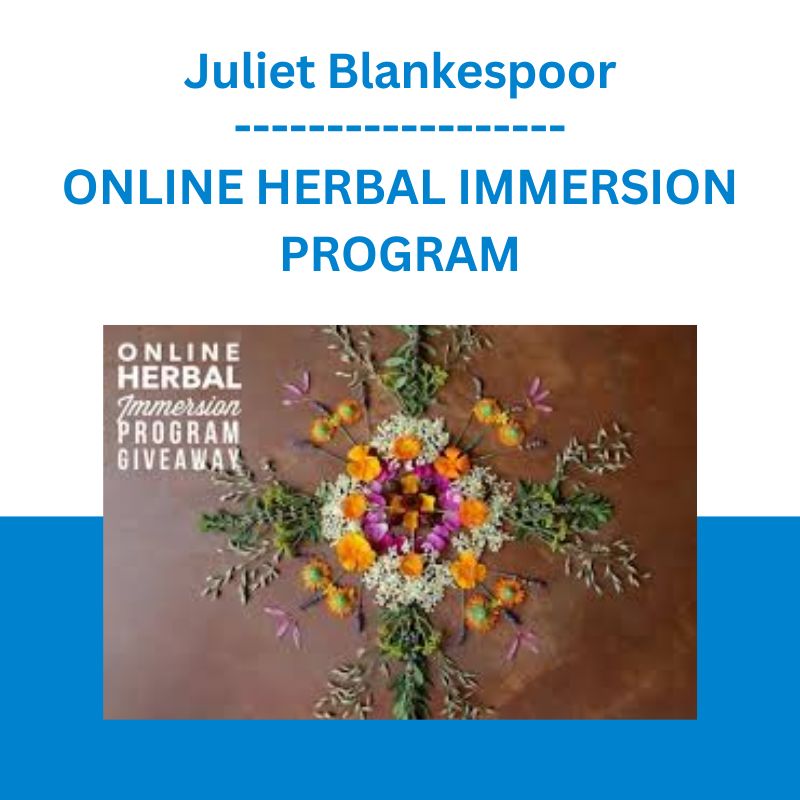








 Duane & DaBen - DaBen's Light Body Consciousness Teacher's Course
Duane & DaBen - DaBen's Light Body Consciousness Teacher's Course  Oliver Velez - Essential Strategy Of Trade For Life
Oliver Velez - Essential Strategy Of Trade For Life  Forexmentor - Recurring Forex Patterns
Forexmentor - Recurring Forex Patterns  Alphashark - The AlphaShark SV-Scalper
Alphashark - The AlphaShark SV-Scalper 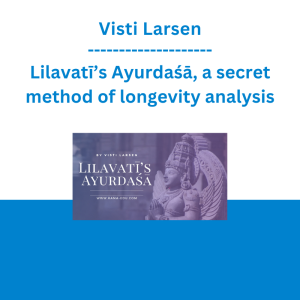 Visti Larsen - Lilavatī’s Ayurdaśā, a secret method of longevity analysis
Visti Larsen - Lilavatī’s Ayurdaśā, a secret method of longevity analysis  Jeremiah Goodman - Massive Wealth Movement
Jeremiah Goodman - Massive Wealth Movement 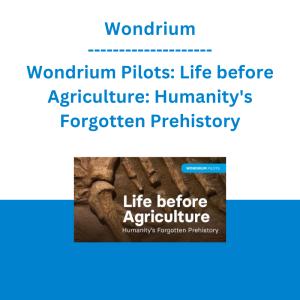 Wondrium - Wondrium Pilots: Life before Agriculture: Humanity's Forgotten Prehistory
Wondrium - Wondrium Pilots: Life before Agriculture: Humanity's Forgotten Prehistory 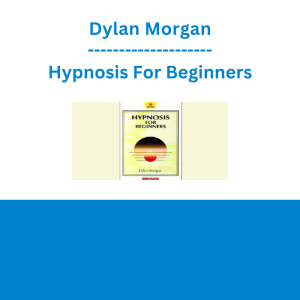 Dylan Morgan - Hypnosis For Beginners
Dylan Morgan - Hypnosis For Beginners 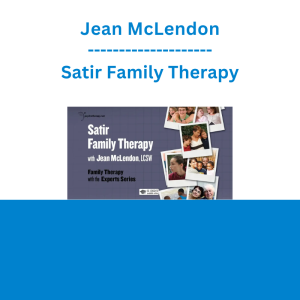 Jean McLendon - Satir Family Therapy
Jean McLendon - Satir Family Therapy 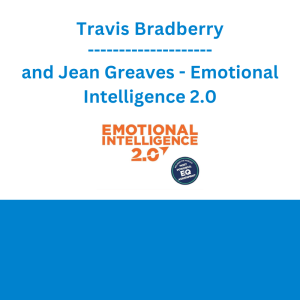 Travis Bradberry and Jean Greaves - Emotional Intelligence 2.0
Travis Bradberry and Jean Greaves - Emotional Intelligence 2.0  Live Class - Customer Acquisition Master Course
Live Class - Customer Acquisition Master Course